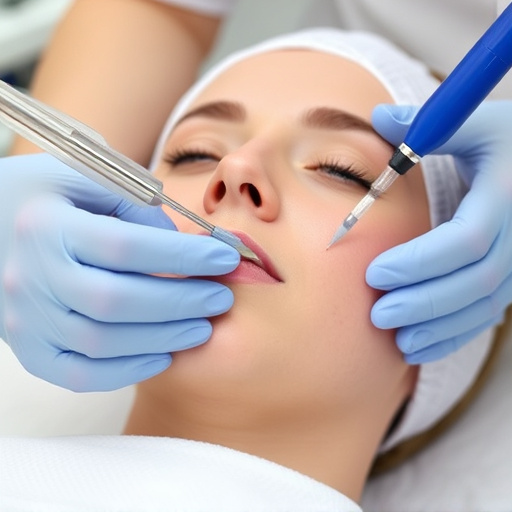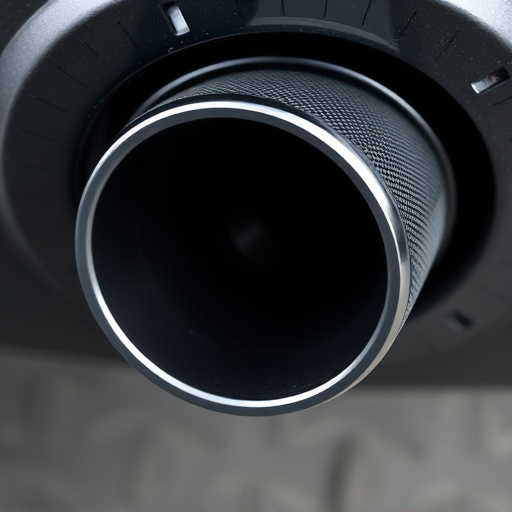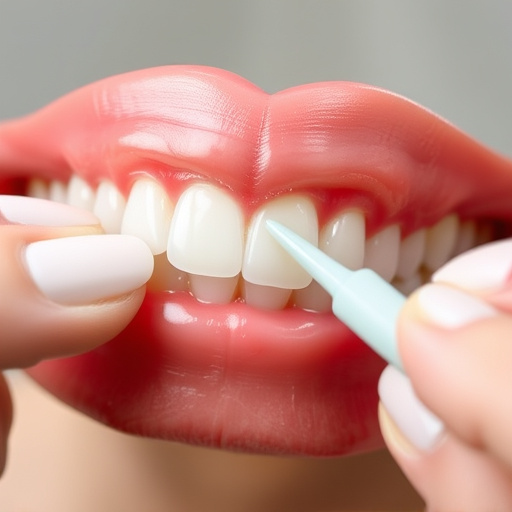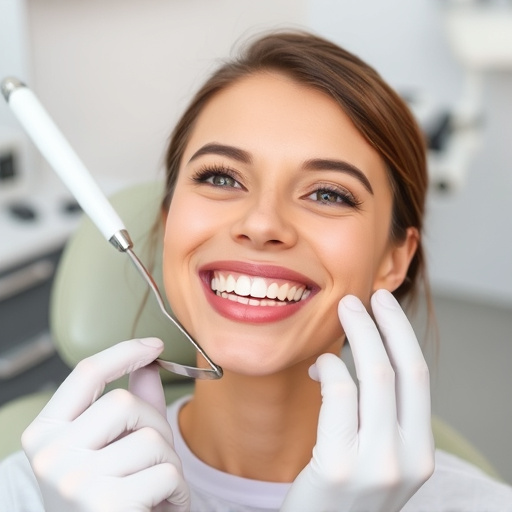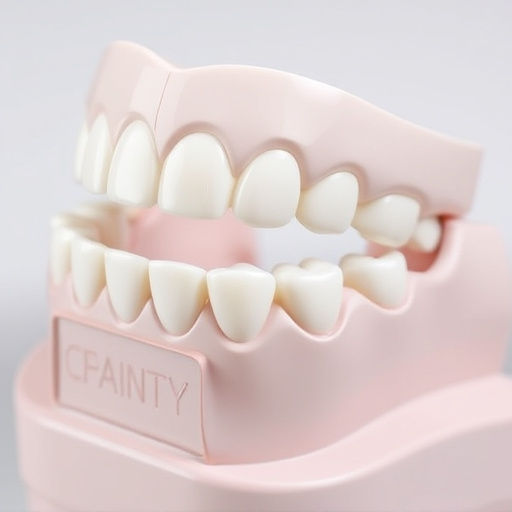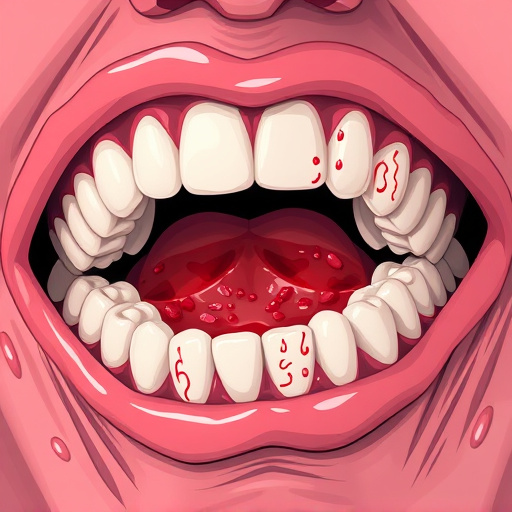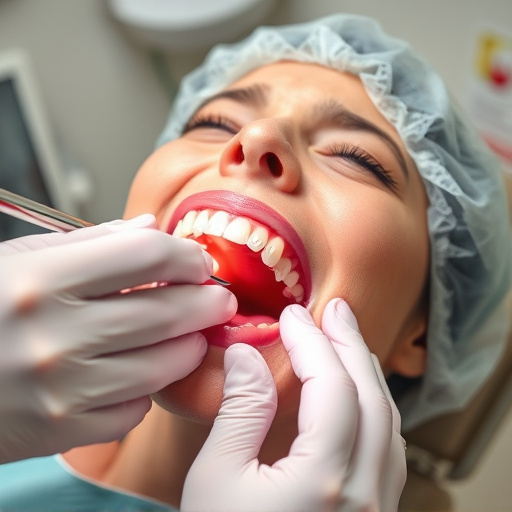Dental health maintenance is a lifelong journey, with distinct needs at each stage. Children should establish routine cleanings, check-ups, and daily brushing/flossing for healthy teeth and gums. Teens require specialized care addressing teething and growing risks of decay. Adults need regular professional cleanings, wisdom tooth management, and monitoring for systemic health issues affecting dental health. Seniors' oral hygiene focuses on comprehensive check-ups, plaque removal, and tailored practices to combat reduced saliva production, ensuring optimal dental health maintenance throughout life.
Dental health maintenance evolves throughout life, adapting to age and individual risk factors. This article explores the shifting landscape of oral care practices as individuals navigate childhood, adulthood, and senior years. From establishing solid oral hygiene habits in children to addressing age-related concerns in seniors, each stage demands tailored strategies. We delve into specific dental maintenance techniques, common issues, and preventive measures for every age group, empowering readers with knowledge to maintain robust dental health.
- Dental Care for Children and Teens:
- – Overview of developing oral hygiene habits.
- – Age-specific dental maintenance practices (e.g., teeth cleaning, fluoride treatments).
Dental Care for Children and Teens:
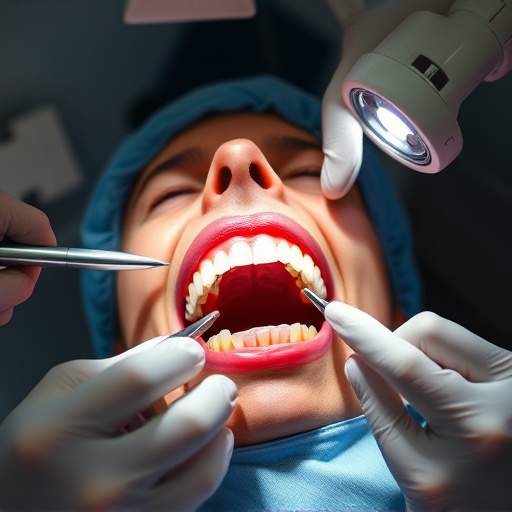
Dental care for children and teens is a crucial aspect of their overall health and development. Starting early with regular dental cleanings at least twice a year, as recommended by general dentistry professionals, helps establish good habits that can last a lifetime. Children’s dentistry specialists play a vital role in teaching kids about proper oral hygiene, ensuring their teeth and gums develop healthily.
As children grow into teens, their dental health maintenance practices should evolve to address changing needs. This includes addressing issues like teething, thumb sucking, and the increased risk of tooth decay and gum disease. Regular visits to the dentist, coupled with appropriate at-home care, including brushing twice a day and flossing once daily, are essential for maintaining optimal dental health throughout these formative years.
– Overview of developing oral hygiene habits.
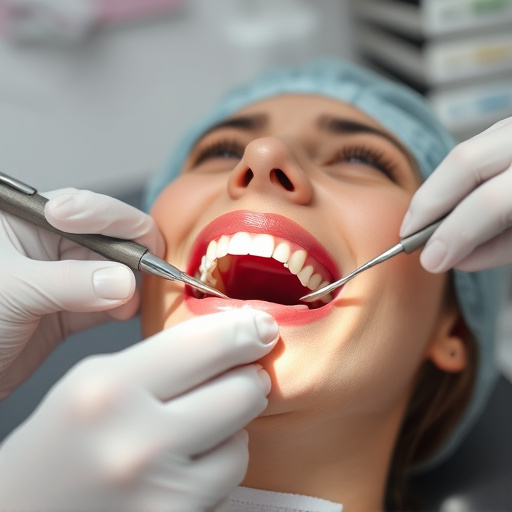
Oral hygiene habits develop and evolve throughout one’s life, adapting to age and individual risk factors for dental issues. For children, the focus is on establishing a solid routine that includes regular brushing and flossing, as well as dental check-ups to prevent early decay or gum disease. Parents play a crucial role in teaching proper techniques and ensuring consistent oral care practices.
As individuals reach adulthood, dental health maintenance takes on new dimensions. It becomes increasingly important to address specific concerns like wisdom tooth removal or restorative dentistry to maintain optimal oral health. Regular visits to the dentist should include professional cleanings and comprehensive exams that consider any changes in overall health or risk profiles, including those associated with conditions such as diabetes or cardiovascular disease. Additionally, monitoring and addressing issues like dry mouth or medication-induced side effects on dental health are essential components of adaptive dental care practices tailored to each life stage.
– Age-specific dental maintenance practices (e.g., teeth cleaning, fluoride treatments).
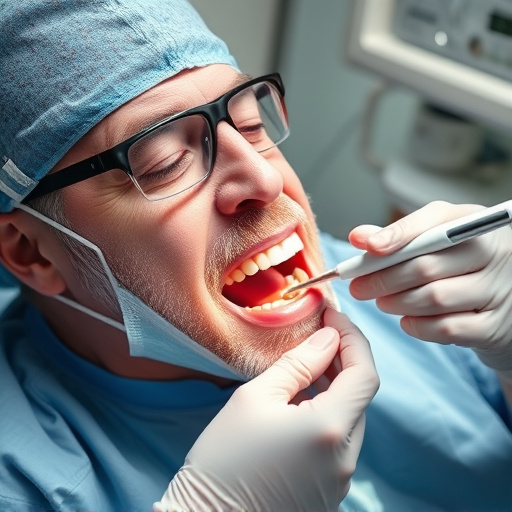
As individuals age, their dental health maintenance practices must evolve to meet changing needs and address unique risks associated with aging. For older adults, regular dental check-ups become even more critical, often involving more comprehensive examinations and specialized treatments. Preventive dentistry plays a pivotal role in this stage, focusing on strategies like fluoride treatments to strengthen tooth enamel and reduce the risk of decay. Moreover, age-appropriate dental cleanings are essential to remove plaque buildup, which can lead to periodontitis if left untreated.
For instance, senior citizens might require more frequent dental cleanings due to reduced saliva production, a common side effect of aging. This decrease in saliva flow can hinder natural cleaning mechanisms, making them more susceptible to cavities and gum disease. Therefore, tailored dental maintenance practices, including the application of dental crowns where necessary, are crucial for maintaining oral health and overall well-being during later life stages.
As individuals age and their risk profiles for dental issues evolve, so too should their dental health maintenance practices. For children and teens, establishing good oral hygiene habits early sets a foundation for lifelong dental wellness. This includes regular teeth cleaning to remove plaque and fluoride treatments to strengthen tooth enamel. As adults, tailored dental care may involve more frequent check-ups, specialized treatments like root canals or periodontics, and ongoing maintenance to address age-related concerns. By adapting these practices to their unique needs, people can ensure optimal dental health maintenance throughout different stages of life.





